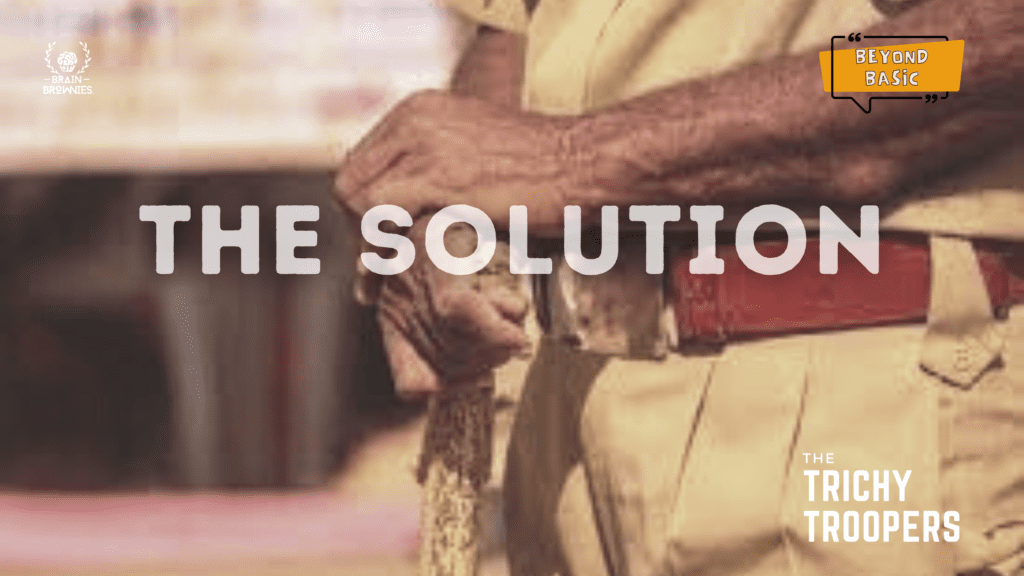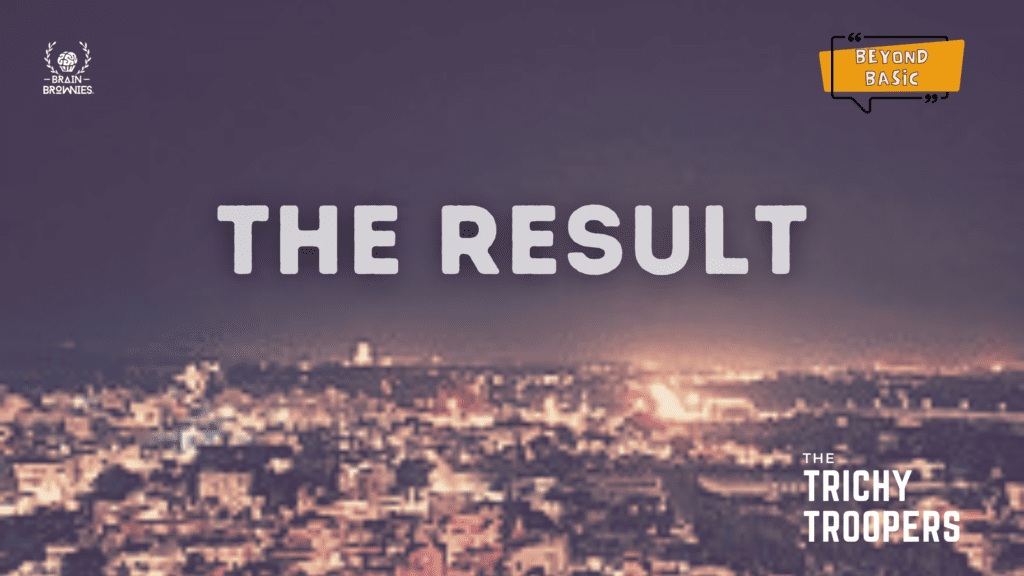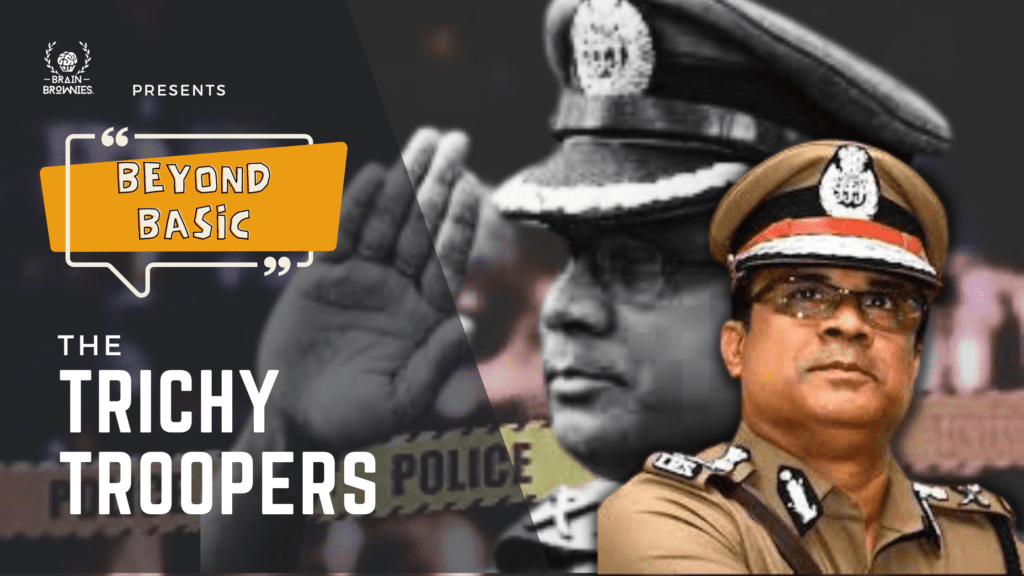Hello there , am Witty Gator – the face of Brain Brownies , and on the 74th Republic Day of India , we introduce you to our new segment tilted – “Beyond Basic” , where we bring you stories of Extraordinary Indians who have earned the biggest Brownie Points in their call to action , proving that they are truly built different.
JK Tripathy is one such name that will always be remembered in the annals of Indian history. He was an IPS officer who bravely faced the 1999 Trichy incident and helped bring peace to the region. His courage and dedication to his job should be an inspiration for all of us , Millennials and Gen Z’ers. Jalad Kumar Tripathy was born in a small village in Tamil Nadu and joined the Indian Police Service on graduating. He served as an IPS officer for over two decades, during which he faced many challenges and tribulations. One such incident was the 1999 Trichy incident, where he had to take control of an extremely volatile situation and restore peace in the region.

JK Tripathy’s bravery and commitment to his job earned him numerous accolades from both within India and abroad. He also received several awards from prestigious institutions such as the United Nations Human Rights Commission for his efforts during this incident. This blog post will provide a brain brownie into JK Tripathy’s act of valour. In 1999, a community leader was killed and the city was tense. Explosives had been planned in police establishments and grenades were hurled at cops. Alienation among communities were widening as criminal attacks on cops became more frequent. Cops lived in fear after constant attacks on them. In short, criminals and terrorists had taken over Trichy.
At this stage an IPS officer of the 1985 batch, took over as commissioner of police in Trichy. JK Tripathy, the mastermind broke down the problem into:
- Intelligence or the lack there off, into the criminal network was the biggest concern. Which meant intelligence reconnaissance was priority number one.
- Reformation of the police mindset from performing their duties as mere crime fighters , to a more reliable civil servants.
- Segmentation of jurisdiction over communities to enable efficient micro-management and cohesion.
- Transcend from a silo-based ‘department first’ approach to a holistic ‘purpose first approach.

Tripathy’s first approach was to revamp the mindset and public image of the police. He screened 2600 police officers and handpicked 260 officers with a track record of excellent effectiveness and clean records with no corruption or bad habits. Tripathy created a beat system and assigned four constables to each beat. He told them to report any small crime in their jurisdiction to him. Tripathy then created 60 neighborhoods and assigned each of his officers to one of those areas. He gave these officers ownership over their communities by making them part of the decision-making process, creating a sense of belonging among citizenry and allowing citizens to connect with their local government representatives on an individual level. This helped build goodwill among residents and increased accountability across all levels of government .This ensured he got constant and quality information from the public. Further complain boxes were set up in every beat and a member of the commissioner’s office opened them every day. These mainly contained information about officers, suggestions and information of beat officers.
Tripathy encouraged the Beats to think holistically about the community and not just policing. Since it was the environment that created the criminals, how could it be changed? For example, corruption in getting the water supplies or in the public distribution system was taken care of by Tripathy’s men. Even though it was not the sole duty of the police force to resolve municipal issues, they went ahead doing it to holistically develop the city. The 1999 Trichy incident shows that the global paradigm of policing that measures the number of police officers per 1000 population is insufficient. Officers don’t have to control every individual in a community, they just have to handle 3-5% who are criminals. And the most effective leverage is achieved when you involve 95% of the community that is inherently peaceful, law-abiding citizens. Tripathy & co. did this exact same thing!

With a total police force of 2600 cops, Tripathy played a smart hand by relying on just 260 of his troopers , who were the most honest cops the city had to offer. Crime detection rate in Trichy climbed steadily from 78% prior to 1999 to 86% in 2000, reaching a peak of 95% in 2004. Nearly 261 criminals were nabbed within the first two years itself. Clearly, Trichy transformed into the safe haven, that it is considered to be today.
JK Tripathy, the knight in shining armor to when Trichy was in a state of turmoil, turned out to be a truly transformational Brain Brownie. He simplified each process and critically negated all obstacles by just getting down to the root of each problem. With his holistic approach, he redefined the essence of carrying out operations as a humble Government servant. We blast our bugle today celebrating the acts of such Indians; so many more may follow in harnessing the bragging rights of national pride and becoming ‘Beyond Basic’!







